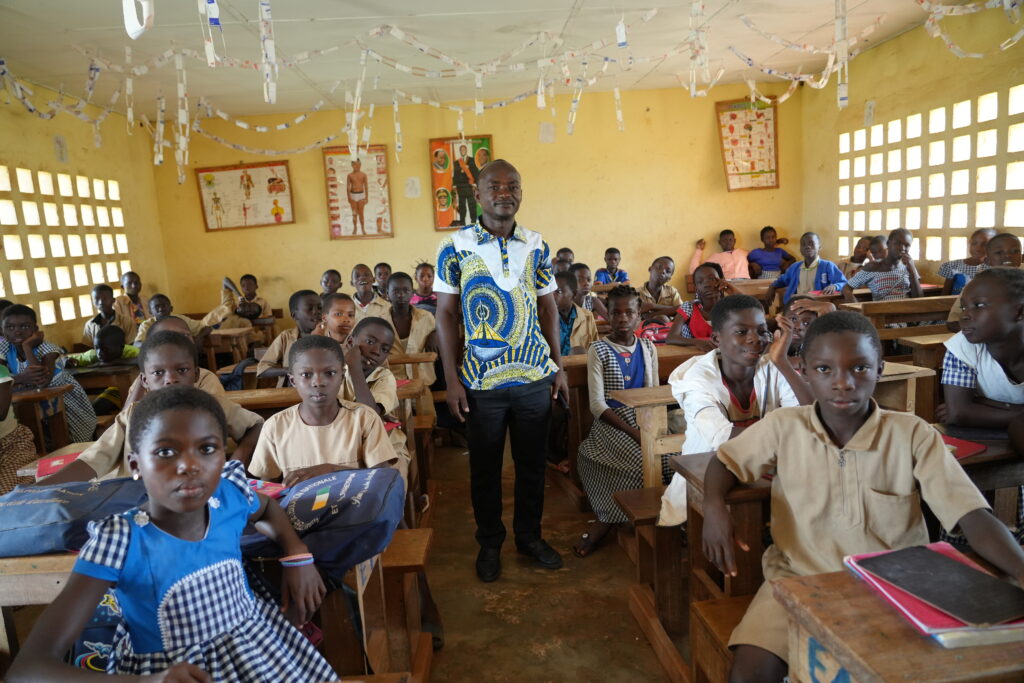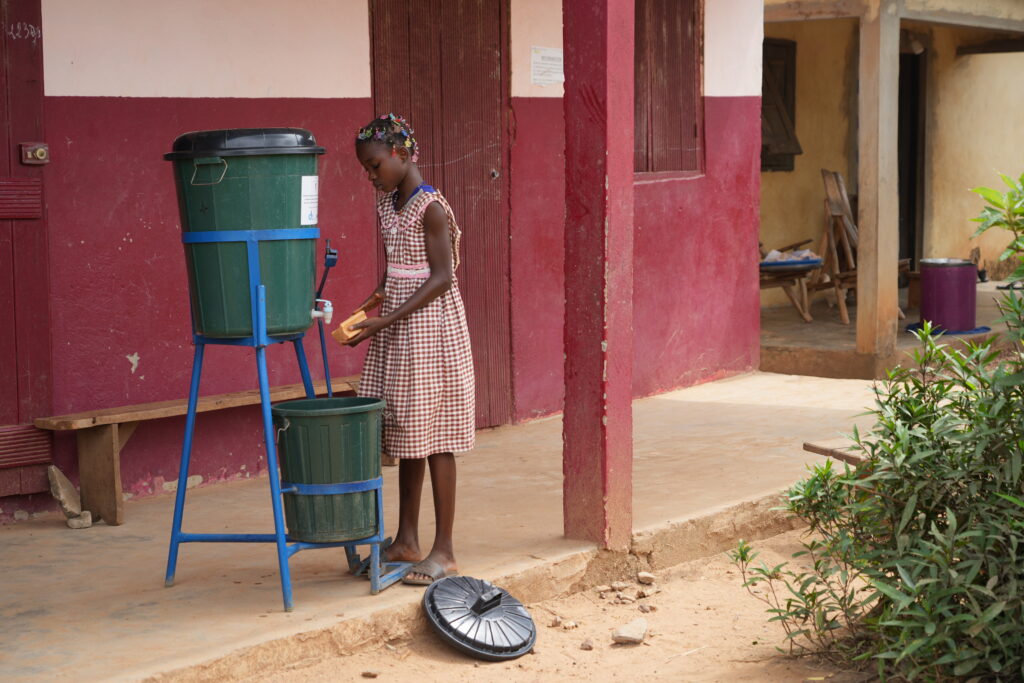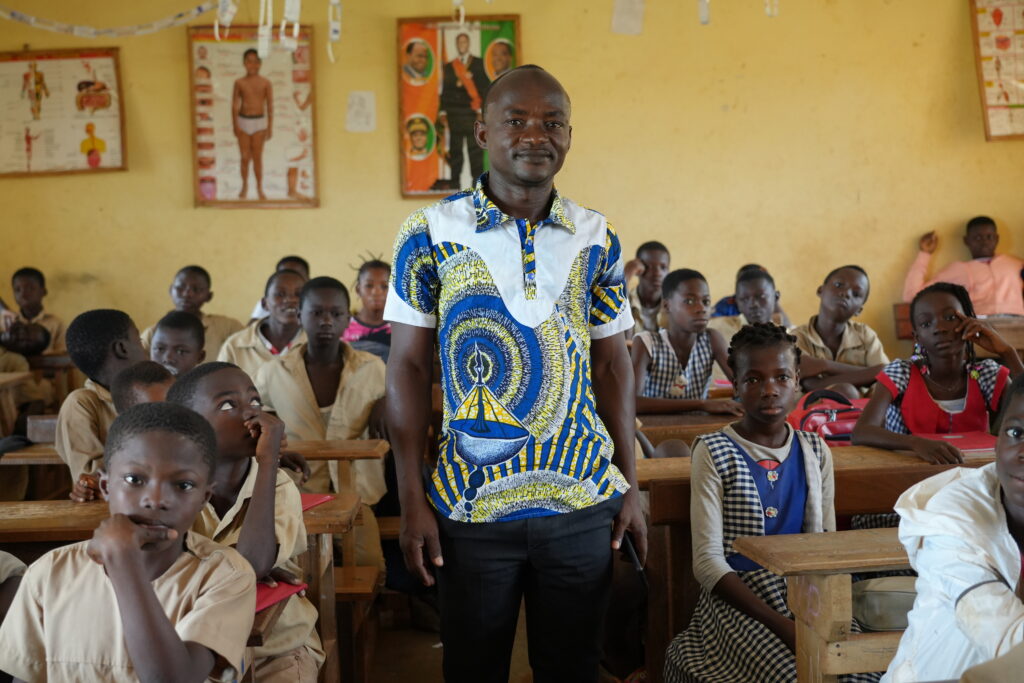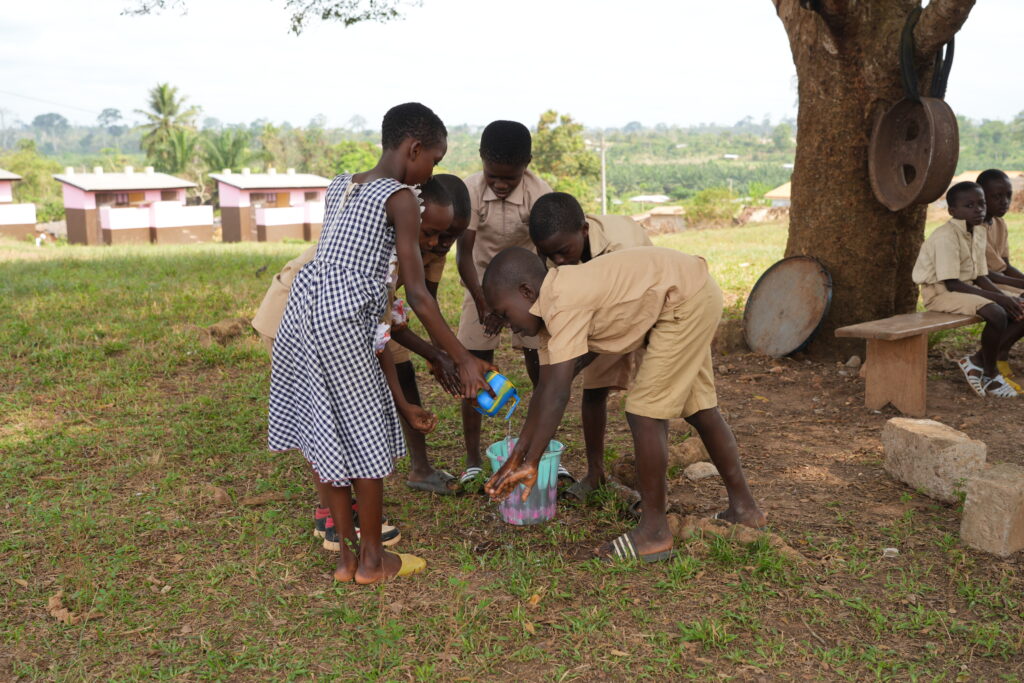Kone Drissa, Chiépo’s school headmaster
"We’ve even told the children to tell us if they feel unwell, so that we can take them to the hospital, which is very close by."


The teachers at Chièpo college in Côte d’Ivoire tend to start classes a few minutes late, allowing time for the children who are always a little late to arrive. The reason for this is twofold: it allows them to monitor which students have turned up and which are missing, but also to carry out a little check-up as to their health:
“At roll call, the teachers try to check up on them. We check if anyone has sores and, if they do, we automatically send them to the paediatrician, because – you never know – it might be an incurable sore, such as Buruli ulcer. We do this because we’ve been told that if a sore is detected, a diagnosis has to be made”. This is Kone Drissa, who has been headmaster at the school since 2009. However, the first time he set foot in the school was much longer ago, 22 years no less, when he joined as a trainee. A lot has happened since then: “There are now six teachers working here. It’s not easy, but we manage quite well”.
Talking to Kone Drissa draws our attention to one of our main resources in the prevention of and fight against NTDs (Neglected Tropical Diseases) in children: teachers. Accordingly, one of the key strands in the hygiene and sanitation project that the Anesvad Foundation and the Raoul Follereau Foundation have been implementing in Chièpo includes teacher training, giving them guidelines for action in the event of identifying a suspected case of NTD:
“The work of the Anesvad and Follereau foundations has certainly taught us a lot in relation to cleanliness and health. We’ve even told the children to tell us if they feel unwell, so that we can take them to the hospital, which is very close by. We have a notebook where we write down all the treatment they receive or whether or not we’ve sent them to the hospital, especially when it’s diarrhoea, stomach aches… We always tell them that if someone is sick, they should tell us. We write it down in the notebook and we send them to the hospital, so that we can be prepared and monitor their progress”.


Collaboration between students and teaching staff is essential in the fight against TEDs.
However, this teacher training would be ineffective without the involvement of the students themselves, who have used what they have learned to organise health clubs and teach others what they know, both inside and outside the school. Their activities include regular tasks such as sweeping and cleaning the whole school, but they also help by emptying the school’s rubbish bins in the afternoon so that the adults in charge can safely incinerate it at the end of the day, preventing the build-up of waste. And their headmaster couldn’t be prouder of them:
“They’ve certainly put in a lot of effort. We’re very encouraged to see that it’s a project that they really value. It involves building something that wasn’t there before. Now they have these improvements and it’s something they’re excited about; it’s improved their attitude at school. It also leads to changes at home. They take the improvements they’ve made in terms of their hygiene home with them and so there’s a positive impact there as well”.

